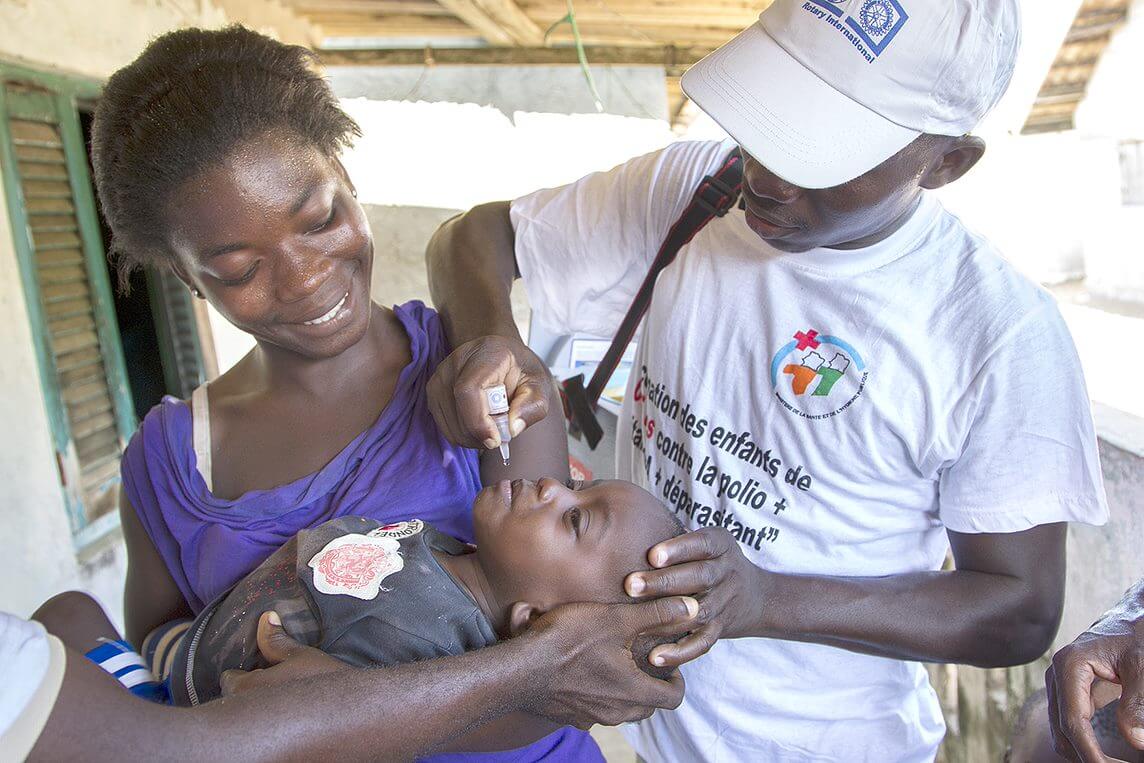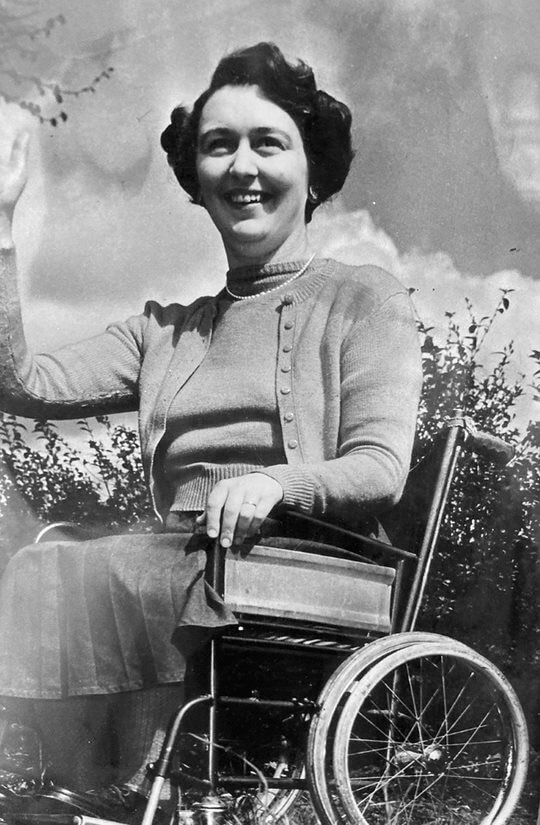When World Polio Day on Monday reminds people of the horrors of the disease, two Cambridge men will be privately revisiting their own families’ experiences with the virus.

A Rotary International worker delivering the vaccine to a baby.
Greg Gascoigne and Roger Gordon are among several Rotary Cambridge members who have personal memories of polio.
Greg’s sister Pauline contracted polio during the early 1950s when at boarding school in Wellington.
“I well recall the horror my parents went through,” he said. “Fortunately, she pulled through OK, but when I went to boarding school in Auckland, several of my mates had badly affected limbs as a result of the outbreak.”
Fellow Rotarian Roger Gordon said his mother, who was a competitive ballroom dancer, contracted polio in the United Kingdom outbreak in 1955, aged 33. He recalled: “After an extended stay in hospital, some of it in an iron lung, she came home. She was paralysed and in a wheelchair for nearly another 40 years until she left us in 1994.”
Their experiences, and those of others, have seen Rotary Cambridge run an annual ‘End Polio Now’ Day to increase awareness of the disease. They will do the same this year, with Paper Plus Cambridge lending support with a window display and fundraising donation box. The display will go up on Sunday to coincide with World Polio Day on Monday.
The wider Rotary network has a long association with efforts to rid the world of polio. Rotary International is known for its global campaign ‘Polio Plus’ which over the years has helped shrink the incidence of the disease to just two countries – Afghanistan and Pakistan.

Cambridge Rotarian Roger Gordon remembers his ballroom dancing mother Barbara (pictured) being confined to a wheelchair after contracting polio in the 1950s.
However, recent outbreaks of polio in the United States have strengthened the arm of those working to eradicate it. The first case of polio in the US in nearly a decade was identified in July in Rockland County, north of New York city, and later detection revealed it had emerged in Long Island.
One of the biggest challenges is the ease with which polio spreads. Although the virus is now considered rare because of modern interventions, the disease can impair the brain area governing breathing, and can be fatal. Polio, which has no recognised therapy, can be avoided through vaccination.








